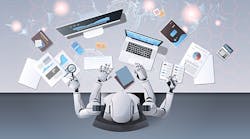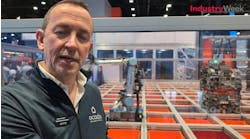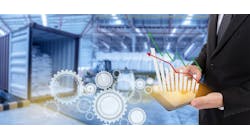I can picture it now: a robot, with its head in its hands, sitting at its desk trying to fill out its tax forms.
But the issue is actually a serious one. A tax on robots has been proposed, both in the U.S. and the EU, as a way to try and recover some of the economic loss as people are pushed out of jobs to make room for the robots.
However, as is the case with any economic solution, there are many sides to any policy. Do we need to offset the revenue that could have been generated through employment taxes? And should that tax be used to provide services for those laid off? Should it be used to retrain for new jobs? Or will the tax prevent companies from incorporating more technology into their processes and deter innovation?
“You ought to be willing to raise the tax level and even slow down the speed” of automation, argues Microsoft’s Bill Gates, who first proposed this robot tax, in an article in Quartz. He points to warehouse work as one of the job categories that will be replaced with robots.
It’s a difficult situation to untangle. Historically, 5 million manufacturing jobs have reportedly been lost and replaced by robots since 2000. Is that merely a reflection of the industrialization that has always taken place in this country? Machines have replaced jobs since we stopped driving around in horse buggies.
Using taxes to stem this automation would harm our economy, according to Robert Atkinson, president of the Information Technology and Innovation Foundation. He examined how the tax code influences business decisions. “Some say that companies are slow to hire due to all of the taxes on the workforce,” he observes. “But if we taxed the robots would companies invest less in that? Or does that stifle innovation since we can’t hold back technology which has always driven us forward?”
The Kellogg Business School at Northwestern University studied how a robot tax would affect income. In a paper in January 2019, the authors concluded that “without changes to the current U.S. tax system, a sizable fall in the costs of automation would lead to a massive rise in income inequality. Even though routine workers keep their jobs, their wages fall to make them competitive with the possibility of automating production. Income inequality can be reduced by raising the marginal tax rates paid by high income individuals and by taxing robots to raise the wages of routine workers. But this solution involves a substantial efficiency loss.”
At a recent MIT conference, a debate was held about this issue as well. On the pro side the argument was that by not taxing machines, as we tax human workers we are then subsidizing robots. The counter argument was made that a robot tax won’t really help deal with the automation issues and the case of robots taking jobs is overstated.
Or are jobs just changing? One interesting case is that of Amazon, whose workforce continues to grow, while at the same time the company continues to increase the number of robots in its warehouses.
Yet another argument can be made, and I have heard this from several companies, that automation is the solution to the current and future workforce shortage. With not enough people wanting to work in warehouses especially, the robots can do the more difficult repetitive work. And that leaves the human workers to do the more creative, value-creating jobs.
To tax or not to tax? That is the question and there isn’t a clear-cut answer.



